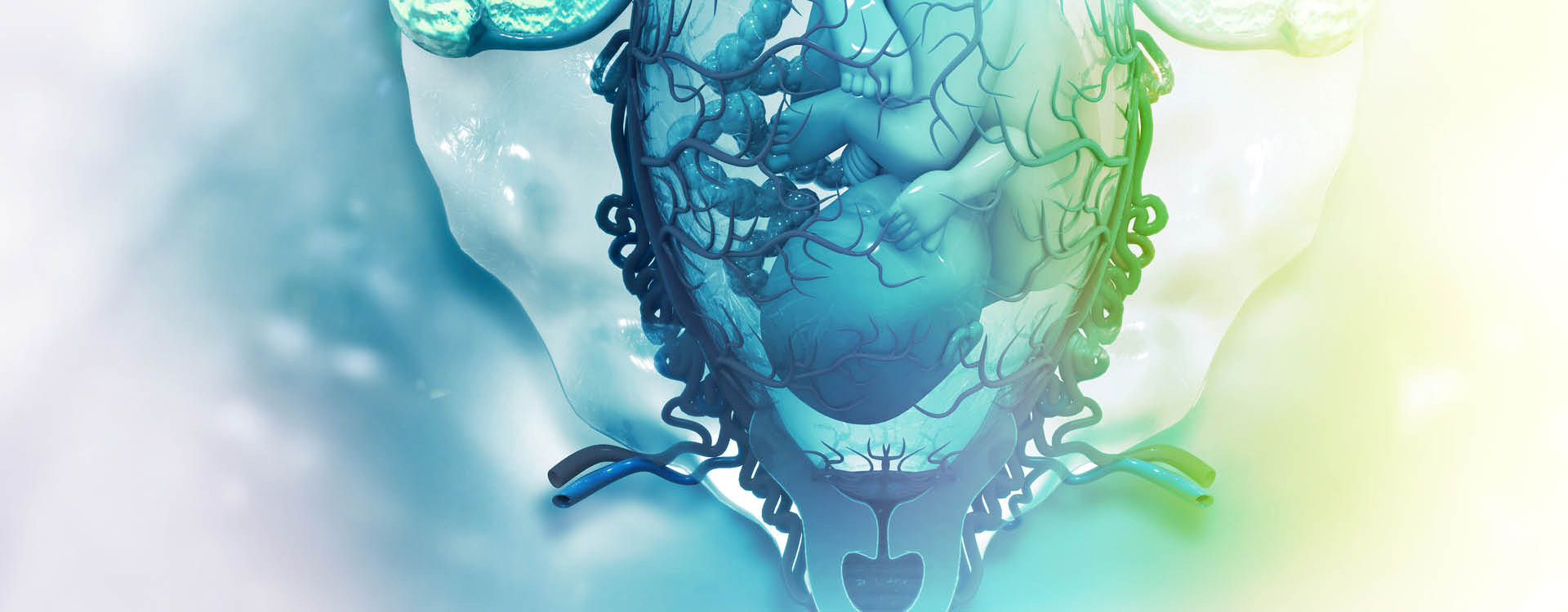In the first few months of pregnancy, as your body adjusts to accommodate a totally new organ (the placenta) and a new life inside you, sex may be the last thing on your mind.
Symptoms like nausea, fatigue, hormonal swings, and a natural desire to keep and protect the baby may have you steering clear of sex.
But sex during the first three months of pregnancy (and beyond!) is normal and there are few reasons not to engage in it throughout a low-risk pregnancy when the mood strikes you.
Here, we answer some of the common questions women have about sex during pregnancy.
Is It Safe to Have Sex in Early Pregnancy?
Yes. While most miscarriages happen in the first trimester, it’s not because of sex, but rather, abnormal development of the fetus or other unrelated causes. In fact, the March of Dimes notes that 10-15% of pregnancies end in miscarriage [*].
Sex during the first trimester of pregnancy does not increase the risk of miscarriage. The baby is protected by strong uterine muscles, the amniotic sac, and the mucus plug at the opening of the cervix which is designed to prevent infection.
However, if you or your partner have sex with other partners during pregnancy, it’s best to use a condom to mitigate the risk of infection from a sexually transmitted disease, which could lead to serious pregnancy complications. And even with the mucous plug, the upper genital tract is still at risk for ascending infection in the first trimester, and chronic upper genital tract infection can recur during pregnancy. Genital tract infections increase the risk of preterm labor [*].
Is Sex Beneficial During Early Pregnancy?
Yes. In addition to reducing stress, improving mood, helping you sleep, and bonding with your partner, sex during pregnancy can also:
- Help prepare the pelvic muscles and cervix for birth.
- Improve orgasm, thanks to the increase in blood supply in the pelvic region during pregnancy.
- Help the mother’s immune system build a tolerance for the fetus. Studies show that cumulative exposure to paternal antigens in semen prior to conception helps protect the fetus from rejection and aids successful implantation and placentation. Vaginal exposure to semen also decreases the risk of preeclampsia, a serious condition often associated with an immune disorder [*]. Oral exposure to semen may be beneficial as well, though more study is needed [*].
How Does Sex Feel During Early Pregnancy?
This varies widely with the many changes a woman’s body is undergoing during pregnancy and hormonal fluctuations.
- Some women report that their breasts become more sensitive to arousal, while others find they become more tender or uncomfortable.
- Some feel better about their body image while others feel more self-conscious.
- As noted earlier, some women experience more frequent or more intense orgasms as a result of the increased blood flow in the pelvic region.
- Nausea and fatigue affect 75% of pregnant women in the first trimester.
- Some women may experience some cramps after sex due to the release of oxytocin during orgasm, as well as the prostaglandins found in semen. It can last up to an hour after sex.
Is It Normal if My Sex Drive Has Increased or Decreased?
Physiological changes during each trimester have a significant effect on sexual behavior. Some women want more sex as the hormones flow – and that’s perfectly natural. At the same time, some women experience vaginal dryness, a lack of libido, and headaches from the increased flow of hormones. Both scenarios are normal [*].
One study of sexuality during pregnancy found that during the course of pregnancy, the first trimester is the most frequent period of intercourse (44.7%), followed by the second trimester (35.6%). 55% of women reported a decrease in intercourse in the third trimester. This study, which surveyed 180 women on the day of discharge from the hospital after birth, found sexual satisfaction to be unchanged in 48.4% of the subjects and decreased in 27.7%. Sexual desire was unchanged in 38.8% and decreased in 32.5% of women. The study included vaginal, oral, and anal sex and masturbation [*].
Another study similarly found a drop-off in sexual activity as the pregnancy progressed. Changes in arousal, lubrication, and orgasm were particularly notable in first-time mothers in their third trimester [*].
Can You Have Unprotected Sex in the First Trimester?
Having unprotected sex in the first trimester with your partner in a monogamous relationship is one of the key benefits of being pregnant. That said, if you or your partner have an active or recently diagnosed sexually transmitted infection, avoid all forms of sex. If you’re not in a mutually monogamous relationship, always use a condom.
Can Sex During Pregnancy Increase the Risk of Preterm Labor?
For women with low-risk pregnancies who have no symptoms or evidence of lower genital tract infection, sex during pregnancy does not increase the risk of preterm delivery [*].
Among women who are already at risk for preterm labor — for instance, women who have previously delivered preterm, have placenta previa, or are carrying twins — there is no evidence to suggest that restricting sexual activity offers a clear benefit. But this is a simple intervention that causes no harm and may be reasonably recommended until better evidence emerges [*].
Can Sex Cause Bleeding in Early Pregnancy?
Yes. Although bleeding isn’t normal in pregnancy it does affect 1 in 3 pregnant women, but not necessarily from sex [*]. When the egg implants, you may see some spotting, but not always. Bleeding or spotting during or after sex may be due to hormonal changes that result in vaginal dryness, on top of the increased blood flow to the pelvic region with pregnancy.
But when the blood is dark red or heavy, it can also be a sign of placenta previa or an ectopic pregnancy. If you’ve got a fever, cramps, contractions, or pain along with bleeding, contact your doctor right away.
Can an Orgasm Cause Bleeding in Early Pregnancy?
Yes. The uterus and cervix receive more blood flow during pregnancy and the tiny blood vessels can rupture a little after orgasm, resulting in spotting.
Is It Normal to Have Cramps After Sex in Early Pregnancy?
Yes. Orgasms release oxytocin, a feel-good hormone, and in tandem with the prostaglandins in semen, may result in some mild cramps or contractions after sex. But as noted earlier, there are immune system benefits to semen. If cramps are severe or occur in tandem with heavy bleeding, contact your care team immediately.
Can an Orgasm Cause Miscarriage in Early Pregnancy?
There is no evidence to support the notion that an orgasm can cause miscarriage in the first trimester. First trimester miscarriages are often the result of a fetal chromosome problem in early development, incompetent cervix, smoking, drug and alcohol use, infection, mother’s age and others. Problems with the development of the placenta can also lead to a miscarriage. Sex during the first three months of pregnancy – with or without orgasm — does not cause miscarriage.
When Should You Stop Having Sex While Pregnant?
It’s best to seek the advice of your care team regarding sex and activity in general if you’re at risk for preterm labor, have a pregnancy complication such as placenta previa or preeclampsia, or are experiencing signs of labor before week 37, such as contractions, backache, or a vaginal bleeding. It’s normal for sexual activity to drop off in the third trimester, but it’s safe to have sex during all trimesters in normal, low-risk pregnancies.
When Is It Safe to Resume Having Sex After Delivery?
Women are advised to wait to resume sexual activity until after 4-6 weeks. The risk of having a complication after delivery is highest during the first two weeks after delivery. Most women are not comfortable returning to sexual activity until the perineum has healed. Some studies suggest that an assisted vaginal delivery may require more time than other delivery methods to resume sexual activity, but there isn’t a clear correlation between the mode of delivery and resumption of sex [*].
90% of women resume sexual intercourse three to four months postpartum, but many experience some pain in the first month or two. Most commonly this is due to vaginal dryness from the low estrogen levels induced by breastfeeding [*]. If you’re breastfeeding but feel ready to resume sex, a lubricant may be advised.
Keeping Your Family Safe After Pregnancy
It may be hard to imagine life after delivery, but it’s important to think about saving your baby’s cord blood and tissue now.
There are more than 80 FDA-approved, life-saving stem cell treatments using cord blood today, and many more applications in clinical trials for conditions such as autism and cerebral palsy.
There’s only one chance to harvest this precious resource from the umbilical cord, and that’s at delivery. MiracleCord offers the industry’s most advanced technology, personal customer service, and affordable pricing. Contact us at 888.743.2673 or download our Free Info Kit to learn more.
The Bottom Line
As late as 1980, many doctors recommended against sexual activity during pregnancy based on paternalistic opinions not grounded in any real research [*].
With cultural shifts in the way we view female sexuality, and more research into sexual function during pregnancy, the safety and benefits of sex have emerged. But in the final analysis, it’s best to listen to your body.
DISCLAIMER: THE INFORMATION ON THIS WEBSITE IS NOT INTENDED TO BE USED AS MEDICAL ADVICE.The materials and information contained on the MiracleCord website is provided for educational and informational purposes only, and is not intended to, and does not constitute, medical or other health advice or diagnosis, and should not be used as such. You should not use this information to diagnose or treat a health problem or disease. If you are seeking personal medical advice, you should consult with a licensed physician. Always consult with a qualified health care provider regarding a medical condition.




